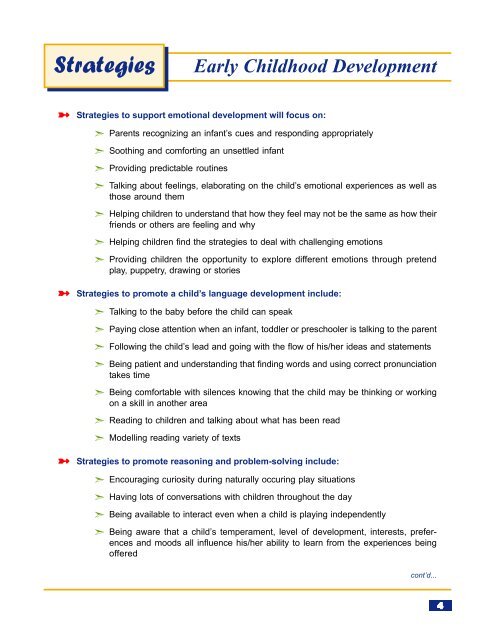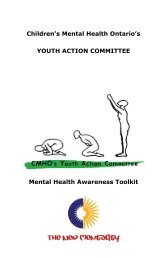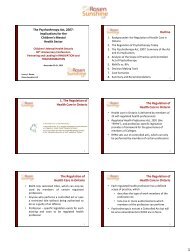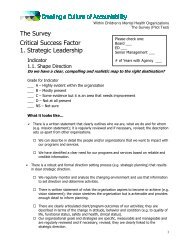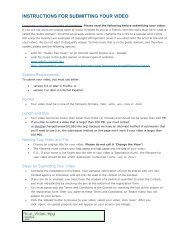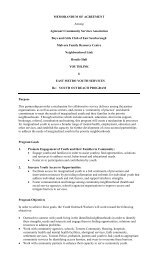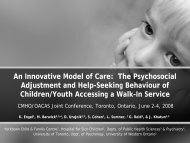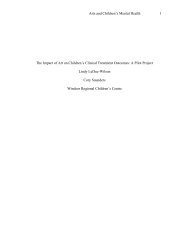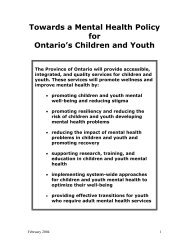Early Childhood Mental Health Treatment: Training Reference Guide
Early Childhood Mental Health Treatment: Training Reference Guide
Early Childhood Mental Health Treatment: Training Reference Guide
Create successful ePaper yourself
Turn your PDF publications into a flip-book with our unique Google optimized e-Paper software.
Strategies<br />
<strong>Early</strong> <strong>Childhood</strong> Development<br />
Strategies to support emotional development will focus on:<br />
Parents recognizing an infant’s cues and responding appropriately<br />
Soothing and comforting an unsettled infant<br />
Providing predictable routines<br />
Talking about feelings, elaborating on the child’s emotional experiences as well as<br />
those around them<br />
Helping children to understand that how they feel may not be the same as how their<br />
friends or others are feeling and why<br />
Helping children find the strategies to deal with challenging emotions<br />
Providing children the opportunity to explore different emotions through pretend<br />
play, puppetry, drawing or stories<br />
Strategies to promote a child’s language development include:<br />
Talking to the baby before the child can speak<br />
Paying close attention when an infant, toddler or preschooler is talking to the parent<br />
Following the child’s lead and going with the flow of his/her ideas and statements<br />
Being patient and understanding that finding words and using correct pronunciation<br />
takes time<br />
Being comfortable with silences knowing that the child may be thinking or working<br />
on a skill in another area<br />
Reading to children and talking about what has been read<br />
Modelling reading variety of texts<br />
Strategies to promote reasoning and problem-solving include:<br />
Encouraging curiosity during naturally occuring play situations<br />
Having lots of conversations with children throughout the day<br />
Being available to interact even when a child is playing independently<br />
Being aware that a child’s temperament, level of development, interests, preferences<br />
and moods all influence his/her ability to learn from the experiences being<br />
offered<br />
cont’d...<br />
4


